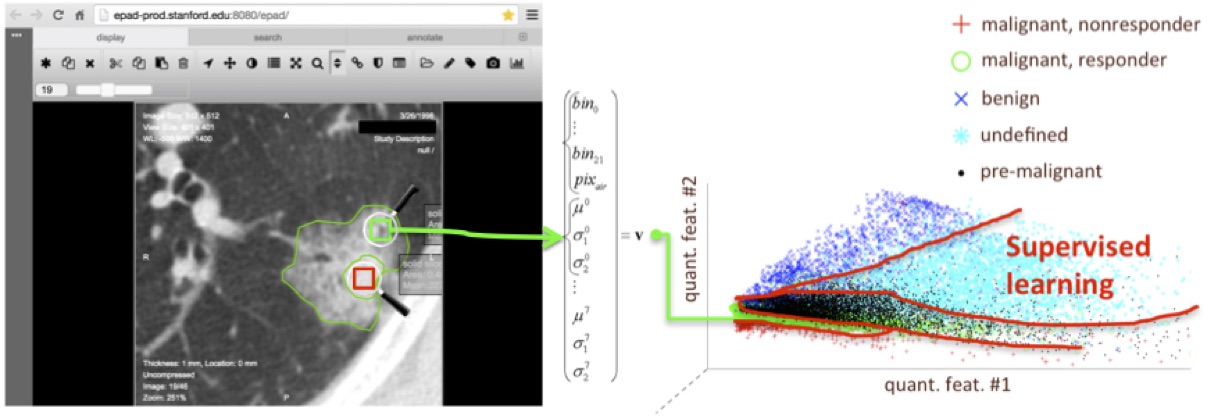Steerable filters as imaging biomarkers for precision medicine
Spring 2018
Master Semester Project
Project: 00357

Radiological data are massively produced in hospitals and are currently underexploited due to the limitation of radiologists to exhaustively and quantitatively analyze them. Recent promises of machine learning showed the ability of computerized algorithms to complement the work of radiologists and to provide powerful and non-invasive imaging biomarkers of lung cancer malignancy. Among them, steerable filters have strong advantages over classical methods, as they can deliver rotation-invariant analysis of biomedical tissue at a low computational cost.
In this project, the student will design a lung nodule classification pipeline based on steerable filters and machine learning to automatically classify them as benign versus malignant, and compare it with existing approaches.
- Supervisors
- Adrien Depeursinge, adrien.depeursinge@epfl.ch, 021 693 5115, BM 4141
- Michael Unser, michael.unser@epfl.ch, 021 693 51 75, BM 4.136
- Prof. Xavier Montet, HUG